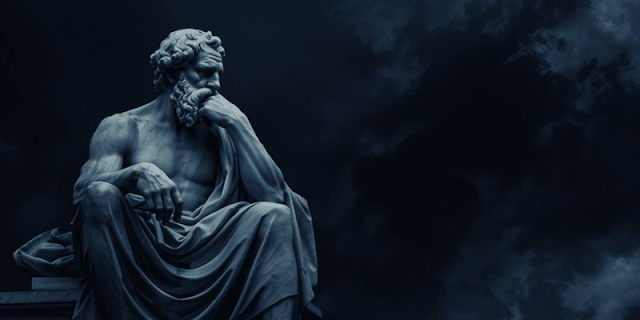Holy Books or Holy Frauds? A Surgical Dissection of Religious Contradictions
The moment one steps beyond the trembling reverence demanded by faith and examines religious texts with the cold, unflinching eye of reason, the entire edifice begins to crack. What was once declared divine truth reveals itself as a patchwork of borrowed myths, scientific impossibilities, and political manipulations, stitched together over centuries by men who mistook their own cultural folklore for cosmic revelation. This is not merely scepticism, it is intellectual hygiene. And like any rigorous cleansing, it leaves behind only what can withstand scrutiny.
Take, for instance, the grand claim of bodily resurrection, a cornerstone of both Islamic and Christian eschatology. The idea that decomposed flesh, long since returned to the biochemical chaos of the soil, could somehow reassemble into a functioning human form is not just implausible; it is an affront to the very laws of thermodynamics. Entropy does not negotiate with scripture. Once cellular structures disintegrate and neural pathways dissolve into nothingness, there is no mechanism, divine or otherwise, that could possibly retrieve the irretrievable. Consciousness is not some mystical vapour that lingers in the ether; it is the emergent property of a functioning brain. No brain, no being. And yet, believers insist with a straight face that dust will remember itself. The Quran even goes so far as to claim that Pharaoh’s body was preserved as a divine sign of this impending miracle, conveniently ignoring that Egyptian royalty were routinely mummified, and that Ramses II’s remains show no evidence of drowning, only the mundane ravages of age and arthritis. If this is Allah’s idea of proof, it is telling that He relies on the same mortuary practices as any other Bronze Age death cult.
Then there are the prophets themselves, those supposedly infallible messengers whose stories collapse under the slightest historical scrutiny. Consider Joseph, the dream-interpreting vizier of Egypt, whose tale is spun with the melodrama of a soap opera but the substance of a desert mirage. The Quran’s version, like the Bible’s, hinges on a seven-year famine that leaves no trace in the archaeological record, a slave’s rise to power that defies all bureaucratic logic, and a narrative so riddled with inconsistencies that it reads like a game of theological telephone. In one account, Joseph is sold to traders; in another, he is abandoned in a well. Neither version explains how a foreign prisoner could decipher the dreams of a monarch without speaking his language, or why a Pharaoh would elevate him to power instead of, say, one of the countless native scribes trained in such arts. These are not minor discrepancies, they are fatal flaws in the scaffolding of revelation.
Moses fares no better. The Exodus, that grand saga of liberation, leaves not a single footprint in the sands of history. No Egyptian records mention the enslavement of millions of Hebrews, no papyrus laments the loss of an entire army in the Red Sea, and no shard of pottery marks forty years of wandering in the Sinai. The plagues alone, water turning to blood, locusts descending on command, would have been catastrophic enough to etch themselves into every chronicle of the age. And yet, silence. The only logical conclusion is that the story is myth, not history. A fable crafted to serve a people’s identity, not a testimony of fact.
Even the foundational claim of monotheism, that all Abrahamic faiths worship the same God, unravels upon inspection. The Christian Trinity, with its paradoxical fusion of Father, Son, and Holy Spirit, is outright blasphemy in Islam. The Quran condemns those who say “God is Christ” as unbelievers destined for hellfire. Yet both religions claim descent from Abraham. How can two gods who deny each other’s fundamental nature be one and the same? The answer, of course, is that they cannot. The “one true God” is a moving target, reshaped by every generation to suit its needs.
Catholicism, with its pomp and papal decrees, is perhaps the most brazen example of this reinvention. The Vatican’s claim of apostolic succession, that Peter was the first pope, is a historical absurdity. Peter was an illiterate fisherman, not a monarch in a palace. The very concept of papal infallibility was concocted centuries after Christ, at councils where bishops voted on doctrine like politicians trading favours. If this is divine authority, then truth is nothing more than a show of hands.
The question, then, is not whether these texts contain wisdom, even a broken clock is right twice a day, but whether they deserve the immunity from criticism that faith demands. If we applied the same standards to any other claim, say, a man who insists he can breathe underwater or remember his past life as a Babylonian king, we would dismiss it instantly. Yet when the impossible is cloaked in scripture, otherwise, rational people lower their defences.
There is an alternative to this intellectual surrender. It is the embrace of uncertainty, the humility to admit that we do not have all the answers, and the courage to reject those who pretend they do. The universe is strange enough without invoking miracles. Life emerged from chemistry, not commandment. Morality evolves from empathy, not edict. And if we must seek meaning, let it be in the tangible, the testable, the real, not in the fading echoes of ancient whispers.
So let the faithful present their evidence. Let them explain why entropy pauses for the righteous, why history forgets the miraculous, and why their God’s grand design looks so much like human guesswork. Until then, the burden of proof remains unmet. And in that silence, reason speaks loudest of all.


Comments
Post a Comment